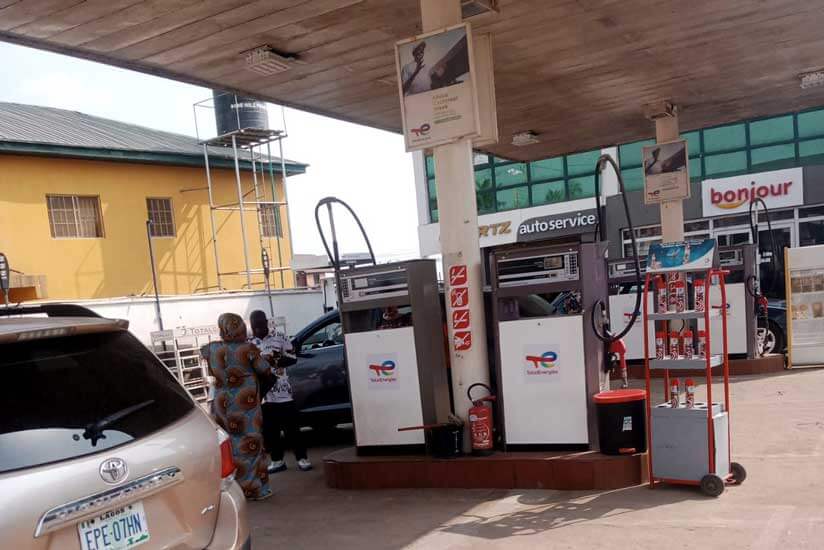EXPLAINER:Why NNPC, Other Oil Marketers Raised Petrol Price From N537 To N617 Per Litre
On Tuesday morning, Nigerians woke up to be greeted with a new pump price of Premium Motor Spirit popularly called petrol.
The Nigerian National Petroleum Company Limited in the early hours of Tuesday raised the pump price of petrol from N537 per litre which was the price when fuel subsidy was removed by President Bola Tinubu on May 29 this year to N617 per litre.
Advertisement
The development took many Nigerians unaware considering the fact that many of them are still grappling with the recent fuel price increase when the subsidy was removed by the President.
Many motorists that visited the filling station on Tuesday with the hope of buying at the old price of N537 per litre were surprised to meet a new pump price.
But the increase in fuel price should not come as a surprise because the sector has been deregulated and prices are expected to reflect the current economic realities.
Here are the three major factors that could have been responsible for the price increase in petrol.
Advertisement
- • The recent increase the price of crude oil in the international market: When President Bola Tinubu removed fuel subsidy on May 29 this year, the price of crude oil was about $74.75 per litre. However, as of the end of trading on July 17, the price of crude oil had risen to $82.74 per litre. This implies that between May 29 and July 17, the price of crude oil in the international market had risen by $7.99 per litre or 10.68 per cent. What this means is that since Nigeria still rely on imported petrol to meet local demand for the product and with the deregulation of the sector, the price of petrol will continue to reflect the international price of crude oil.
- The increase in the Dollar to Naira exchange: Another possible factor that could have led to the increase in the price of petrol is the increase in the exchange rate between the Naira and the Dollar.
Recall that when the President announced the removal of fuel subsidy on May 29, the Naira was exchanging at N740 to the Dollar and the foreign exchange market had not been liberalized.
But with the liberalization of the foreign exchange market following the removal of Mr Godwin Emefiele as the Governor of Central Bank of Nigeria, the Naira has continued to lose its value in the foreign exchange market.
Currently, the Naira is trading at about N829 to a dollar due to persistent pressure from Nigerians and investors for foreign exchange to conduct international transactions.
Advertisement
With the removal of petrol subsidy, oil marketers are now free to source their foreign exchange anywhere around the world to import petroleum products and then recover their costs without impediments. This is would be expected to have an effect on the price of the product.
- The third factor is the high transportation costs: The distribution of petroleum products across the country is done through the movement of trucks. And this was why, during the period of fuel subsidy, the Federal Government came up with the Petroleum Equalization Fund through Decree 9 of 1975 (as amended by Decree Number 32 of 1989 now chapter 352 of the Laws of the Federation).
The main objective of that Fund is to ensure price uniformity of petroleum products via the reimbursement of marketers for losses they incur in trucking products from depots to their filling stations anywhere in Nigeria.
But with deregulation of the downstream petroleum sector following the removal of fuel subsidy, the Federal Government has now stopped the payment of the fund. Since then, a lot of things have changed. What this means is that oil marketers will be solely responsible for how their products are transported from the depot to their respective petrol stations. The implication of this is that the price of movement of this product would be transferred to consumers of petrol and this is expected to have an impact on the final price of petrol.



